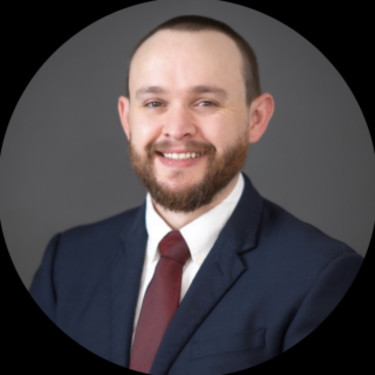With Match Day 2024 just shy of a month away, it seems strange to write an article about failing to match into a residency program. However, this is Sub-I season and there is no better time for us, as mentors, to think about how to best guide our student mentees. I’ve been fortunate to have many great mentors walk with me on the path to finding a residency spot. As someone who, personally, did not match into a competitive field the first time around, the biggest challenge I’ve found in seeking mentorship was finding someone else who was familiar with the numerous alternative options — someone who had walked the same path.
Last year, the NMRP reported over 1,400 applicants for almost 900 orthopaedic residency positions, and the number of unmatched residents is only growing. Odds are, most of those mentoring hopeful residency applicants will have to council at least one unmatched candidate in their career.
Match week is particularly difficult when trying to navigate the SOAP (formerly “scramble”) when you haven’t prepared for the possibility of not matching. To avoid making emotional decisions, I often counsel students to plan well in advance — create a plan B, C, and D. Multiple pathways exist, but not everyone knows how to maximize the potential for each option.
Before discussing the alternative routes into orthopaedics, I want to highlight areas where mentors can help students prior to Match Day or even application submissions. With Step 1 now a pass/fail test, we have seen an increasing focus on other differentiators such as AOA status, class rank, honoring clinical rotations, and research experiences. Currently, I serve as a mentor through the Medical Student Orthopaedic Society, and am often paired with early second- or third-year medical students. These are the areas where I tell my mentees to focus their efforts and where, as a mentor, I try to create opportunities to include them in research. I also recommend cultivating a relationship with their local orthopaedic surgery residency program as early as possible — meet attendings, take calls with residents, go to social events, etc.
Sometimes mentoring requires a difficult, candid conversation outlining the applicant's strengths, weaknesses, and chances of matching. That conversation is usually my lead-in to encourage every applicant, even the most competitive, to consider their contingency plan for a scenario where they don’t match. When I meet with an applicant or re-applicant, these are the pathways I discuss:
Preliminary Year: Over the last five years, there have only been a handful of unfilled orthopaedic residency spots. As such, many unmatched applicants find themselves looking to complete a preliminary year. Not many know, however, that you can apply for these positions in the ERAS to improve your chances of getting a preliminary spot that will rotate a resident through the specialty in which they are interested. Often, I guide applicants to preliminary general surgery programs that offer more flexibility to rotate through orthopaedics and/or even “trade” rotations with prelims interested in other fields. Such flexibility can allow one to meet the ACGME requirements for an orthopaedic intern — setting oneself up for PGY2 eligibility should a spot become available. I still remember when the general surgery program director at the University of Colorado-Denver called me during SOAP week to let me know the ways they could help me further my pursuit for orthopaedics. I chose this program for a preliminary year, in part, because of how much knowledge Dr. Nehler had around the first-year orthopaedic resident requirements and his ability to articulate how his program could help me in that area. The main downside to a prelim year is the inability to improve your application in other areas or build a relationship with multiple residency programs simultaneously. At the end of the day, you are still a surgical intern with a busy schedule, which can make the re-application process challenging.
Research: The number of research programs also seems to be growing at a fast pace, and I’ve witnessed many people use this pathway to residency. Because of the time delay on starting research to getting published, most of the programs that boast a “nearly 100% match rate” really require a two-year minimum commitment. That said, research can not only help boost a weak CV but also lead to connections across numerous programs since the world of academia is fairly small. When discussing this pathway, however, I often caution students that some programs will gladly accept them as a research fellow with no intent to take them as a resident. To this day, I often think about one of my former co-workers — who went on to match at a more world-renowned program — telling me about a year of research at a program ending with the program director acknowledging his hard work but stating the program “could not accept” an IMG despite how good of an applicant he was otherwise. For that reason, I encourage applicants to look at a program’s “current resident”/“recent alumni” page for a history of accepting applicants with backgrounds similar to their own. The downsides to a research year include the mediocre pay, restrictions on clinical activities during that year, and lack of a pathway to state medical licensing through research.
Clinical Positions: Some programs offer non-ACGME-accredited clinical positions. When these programs are also affiliated with residency programs, it can serve as a yearlong interview where the potential applicant can show their work ethic and clinical acumen. I’ve seen these positions called numerous things including “house officer/physician” or “consult physician.” These positions carry many of the same pros and cons as doing a preliminary year except generally pay more with the added benefit of being focused on one specialty. These almost unanimously require an unrestricted medical license. Also, even though they are often likened to a PGY2 year, they are not ACGME accredited, so will not help an applicant find an advanced residency spot beyond the years of training with which they entered the house officer position.
Postponing Graduation: I saved this for last because I don’t actually know anyone that has done this to find an orthopaedic position but have seen it in other fields. In theory, postponing medical school graduation could give one time to bolster their CV while also saving an applicant’s ERAS application from being cut by an initial electronic screen by the programs. However, the postponement would quickly be revealed in review of your application or an interview.
Other pathways into a competitive residency, like orthopaedic surgery, may exist, but the above are by-and-large the most commonly utilized. Match Day — March 15, 2024 — is approaching fast, so “Beware the Ides of March,” as the old saying goes. Again, the most important piece of advice that I can offer an applicant is to have a plan and avoid an emotional decision. For mentors, hopefully the outline above can help you better support your mentees in their strategic planning. At times, the most helpful move a mentor can make is the introduction of the mentee to someone, like me, who has faced similar challenges the mentee will encounter when trying to successfully match.
How do you advise your mentees that don't match? Share in the comments.
Kyle Walker, MD, MBA, is an orthopaedic surgeon who is currently training as the Sarcoma Advanced Research and Clinical Fellowship at U.C. Davis in Sacramento. He enjoys skiing, tennis, and spending time at the pool with his wife and two sons. He can be found on instagram at @kywalkermd. Dr. Walker is a 2023–2024 Doximity Op-Med Fellow.
Image by z_wei / Getty







